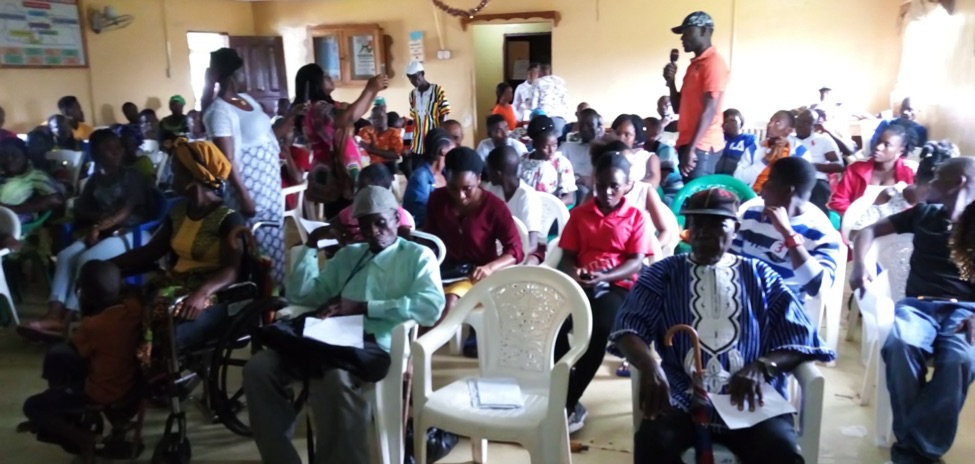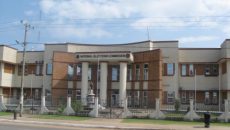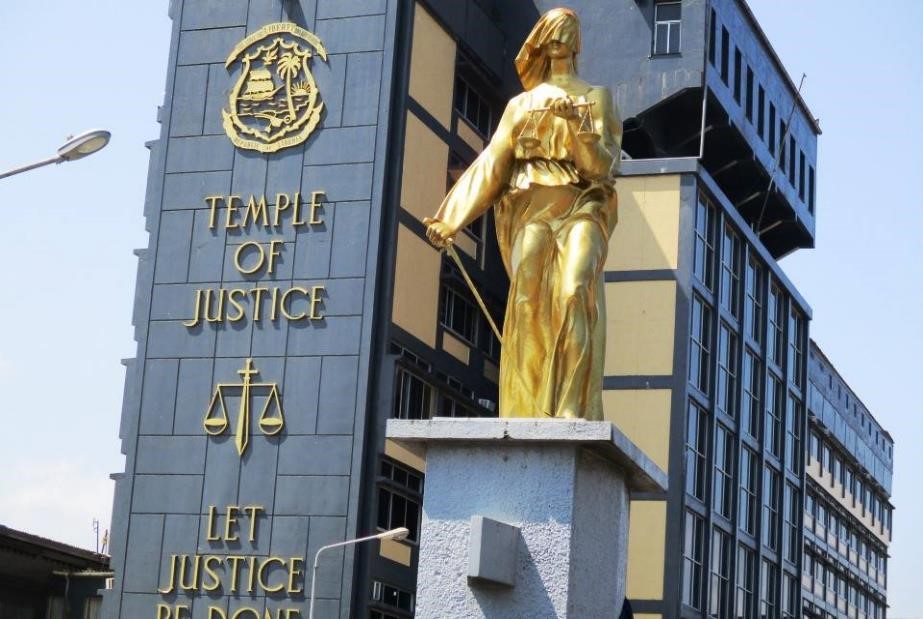BUCHANAN, Grand Bassa– Citizens and civil society leaders in Grand Bassa have embraced the need for electoral reform amid current laws that do not conform to current day realities.
During a recent community media forum organized by the Female Journalists Association of Liberia or FEJAL in collaboration with Internews, the citizens, and civil society leaders said reform in the electoral system and management would save the country of chaos and embarrassments arising from elections. The forum which began with a panel discussion was part of Internews’ Citizens in Liberia Engaged to Advance Electoral Reform or CLEAR project that is sponsored by USAID.
Serving as a panelist at the forum, Grand Bassa’s Elections Magistrate, David Logan thanked Internews and FEJAL for the engagement, noting that it provided the platform for citizens to speak out on issues about democracy.
Logan emphasized the neutrality of the National Elections Commission or NEC adding that it is more focused on running the election systems and mechanisms. He said the commission is also working in concert with stakeholders in reforming the country’s election laws.
According to him, stakeholders, including local and international organizations which covered the 2017 elections had listed 144 recommendations for electoral reform, but the number has been reduced to nine broad theme areas. They include political parties’ regulations, election date, and NEC’s judicial responsibilities, women’s participation, voter registration and election administration, electoral districting, outreach and access to information, the role of the media and electoral justice, among others.
He said: “It is worth to note that the commission is working in concert with various stakeholder groups aimed at reforming the electoral laws of Liberia to meet present-day reality.â€
His co-panelist, Martha Kangar who is also executive director of the Bassa Women Development Association or BAWODA called for increased support to encouraging adequate women representation.
Karnga disclosed that the lack of support for woman representation by their male counterparts has continued to reduce the interest of women in politics. She recommended that the laws be amended to allot a specific number of seats in the legislature for women and people with disability.
Other participants also voiced out their views citing several changes in the elections law of Liberia to correspond with present-day reality to avoid future embarrassment.
Bobby Gibson, an official of a local intellectual center in Buchanan recommended that NEC officials such as election magistrates in the counties be paid up to US$5,000 a month in order to promote integrity and protect them against being bribed to compromise electoral decisions. It is not known how much a magistrate currently makes in salary.
According to Gibson, such action would help to ensure credibility and impartiality among the NEC officials.
Francis Myers, a citizen who also participated in the forum recommended that additional seats be allotted in the Senate and House of Representatives for women, youths and people with disability. Myers’ recommendation was supported by a member of the disabled community, Jerry Laffey.
For Joseph Goffa, taking away the NEC’s adjudicatory power and giving it to an independent body would address issues of the commission’s conflict of interest.
“But the independent body should not be appointed by the president because if so, they will not be independent, they should be appointed by independent people and [even] they should not be paid by the Liberian government, but international partners to [ensure] their independence,†Goffa said.
Another citizen, Harriet Solunteh of the Concern Women Organization wants the current date of election to be changed to the second Tuesday in November on grounds that October is the peak of the rainy season in Liberia. Solunteh said heavy rainfall can reduce citizens’ participation in election activities and as well discourage turnout on Election Day.
Her suggestions were backed by Elizabeth Wheagar, a member of the Bassa’s disabled community.
Frances Boe also wants the National Legislature to pass a law that would require elected officials wanting to contest for another elected office while still serving in the previous office to resign before being qualified to contest any election.
“People like you and they elected you, so if you want another elected position while your time has not expired, [then] resign before you contest,†Boe said.
“Because you know if you don’t win you will come back to your position, so resign before you contest.â€
A 17-years old, Janet Joe wants the age requirement for eligible voters to be reduced from 18 to 17-years old. But Peter Junius challenged the recommendation and said he supports an increase in the voter eligibility criteria from 18 to 25-years, the same as the eligibility criteria contesting for a representative position.
“You cannot be 18 and elect 25 years old people and then they deny you from contesting because you are 18. So, if it is the case, then you should be 25 years old before voting,†Joe said.
He also wants the tenures of elected public officials from six to five for president and six to four years for representatives.
The participants commended FEJAL and Internews the opportunity to express their views and called on the national Legislature to ensure that their recommendations are taken into consideration and should reflect in the changes that would be made to the election laws.
This article was produced with funding from Internews for the Citizens in Liberia Engaged to Advance Electoral Reform (CLEAR) project.
Featured photo by Sampson David



